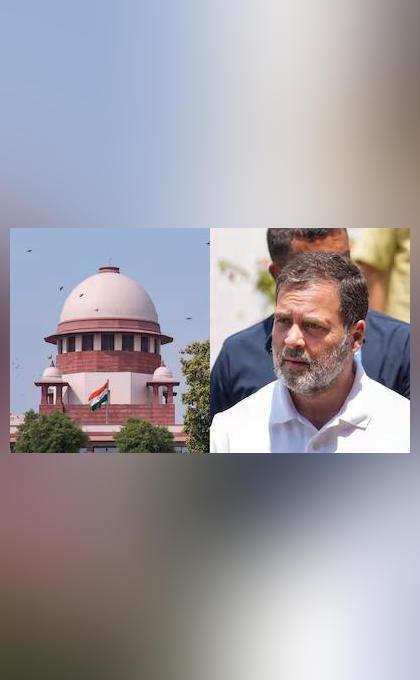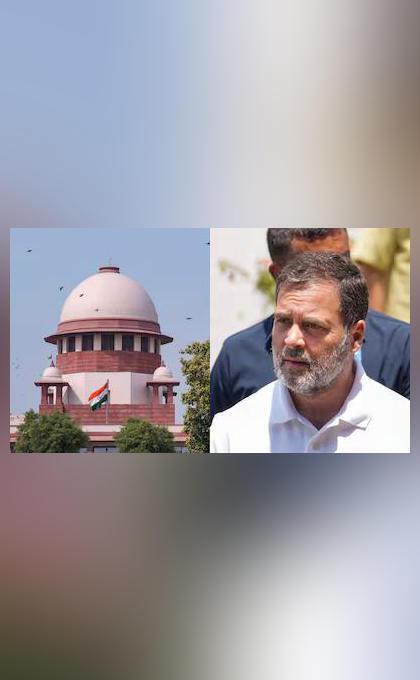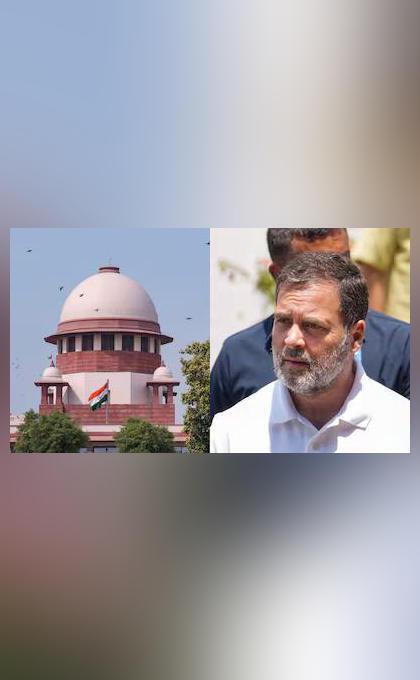
Why ask on social media & not in parliament: SC to Rahul on ‘land grab’ claim
In a recent development, the Supreme Court has pulled up Congress leader Rahul Gandhi over his claim that China had grabbed 2,000 square kilometers of Indian land. The court’s sharp rebuke came while staying a defamation case against Rahul for his remarks about the Indian Army.
Rahul Gandhi’s assertion, made in 2020, sparked a heated debate in the country, with many questioning the veracity of his claim. The Supreme Court’s intervention has now added another layer of complexity to the issue.
So, what prompted the Supreme Court to take a strong stance against Rahul Gandhi? And what does this mean for the future of political discourse in India?
The Background
In June 2020, Rahul Gandhi had made the claim that China had grabbed 2,000 square kilometers of Indian land. The statement was made in the context of the ongoing standoff between Indian and Chinese troops in the Doklam plateau. Gandhi’s remarks sparked a heated debate, with many questioning the accuracy of his claim.
The Chinese government, in response, had dismissed Gandhi’s claim as “completely false and baseless”. The Indian government, too, had clarified that the border dispute with China was a complex issue that required careful consideration and diplomatic efforts.
The Supreme Court’s Intervention
In a recent hearing, the Supreme Court stayed a defamation case against Rahul Gandhi, filed by the Indian Army over his remarks about the Indian Army. However, the court also took a strong exception to Gandhi’s claim about the land grab, saying that he had no evidence to back up his assertion.
“How do you know that 2,000 square kilometers of land was occupied?” the Supreme Court asked Rahul Gandhi’s lawyers. “Why are you asking such questions on social media instead of asking them in Parliament?”
The court’s questions highlighted the lack of evidence to support Gandhi’s claim, as well as the fact that important issues like national security and foreign policy should be discussed in a more formal and structured manner, such as in Parliament.
What Does This Mean for Political Discourse?
The Supreme Court’s intervention has raised important questions about the norms of political discourse in India. While Rahul Gandhi’s claim may have been made in good faith, the court’s rebuke highlights the need for politicians to be more responsible and careful in their statements.
In the age of social media, it is easy for politicians to make statements that are not backed up by evidence, and for these statements to go viral and create a sense of panic or outrage. The Supreme Court’s intervention serves as a reminder that important issues like national security and foreign policy require careful consideration and deliberation, and should not be reduced to simplistic soundbites or hashtags.
Moreover, the court’s rebuke highlights the importance of parliamentary democracy and the role that institutions like Parliament play in holding governments accountable. By asking Rahul Gandhi to justify his claim in Parliament, the court is emphasizing the need for politicians to engage in a more constructive and respectful dialogue, rather than resorting to sensationalist rhetoric.
Conclusion
The Supreme Court’s rebuke of Rahul Gandhi’s claim about China’s alleged land grab serves as a reminder of the importance of responsible political discourse in India. While politicians like Gandhi may have their own perspectives and opinions on important issues, they must always be careful to support their claims with evidence and to engage in a constructive and respectful dialogue.
The court’s intervention also highlights the need for politicians to engage with important issues like national security and foreign policy in a more formal and structured manner, such as in Parliament. By doing so, they can help to build trust and confidence among the public, and can promote a more informed and nuanced understanding of important issues.
Source:



